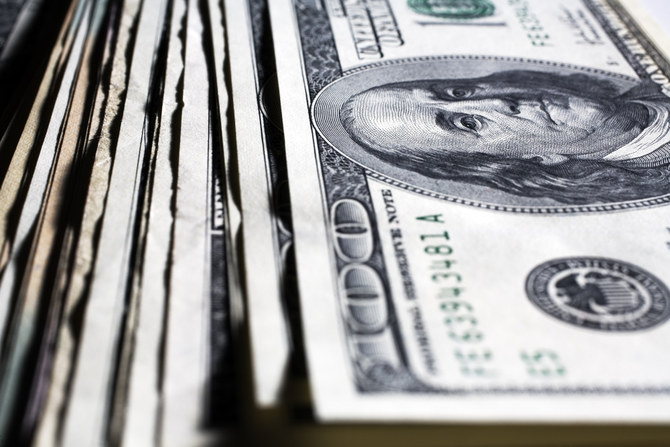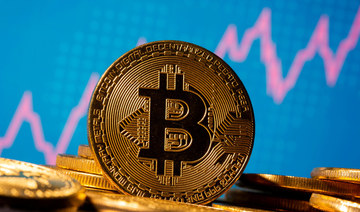The week that was:
The two big stories of the week were vaccines and an OPEC+ compromise on tapering production cuts.
The UK approved the Pfizer/BioNTech vaccine and will receive the first shipment by mid-December. Healthcare workers, care home residents and the elderly will be vaccinated first. Stock markets across the globe rallied on the news, with the S&P 500 reaching new highs.
The optimism may be overdone in the long run, because COVID-19 cases west of Suez are still high (at all time highs in the US). Germany extended its mini lockdown through Jan. 10. Pfizer also had to lower the production of vaccines from 100 million doses to 50 million in 2020 on account of issues with ramping up the raw materials' supply chain. The company will produce a billion doses in 2021. The latest development dampened the mood in the equity market.
OPEC+ held tense meetings on whether to extend the current 7.7 million barrels per day (bpd) into next year or taper to 5.8 million bpd as of Jan. 1. News on vaccines and strong demand east of Suez had led to a four-week oil price rally ending Friday last week, rendering consensus elusive and leading to a falling oil price.
On Thursday the 23 countries decided to taper cuts by 500,000 bpd to 7.2 million bpd on Jan. 1 and review the situation on a monthly basis.
Saudi Energy Minister Prince Abdulaziz bin Salman said the grouping would watch markets closely and tweak cuts according to developments. The decision was well-received by markets, with Brent climbing by more than 2 percent.

Fed chairman Jerome Powell and US Treasury Secretary Steve Mnuchin testified before Congress. Powell again emphasized the importance of keeping the stimulus going and assuring law makers that the Fed would keep interest rates at current levels for the foreseeable future.
Initial jobless claims for the week of Nov. 28 came in at 712,000, down 75,000 from the preceding week and representing the first decline in three weeks. The Labor Department reported November non farm payrolls up by 245,000 and the unemployment rate as 6.7 percent, down 0.2 percent. While this was good news, non farm payrolls came in 215,000 lower than a Bloomberg survey among economists had predicted.
Speaker of the House of Representatives, Nancy Pelosi, indicated $908 billion as the baseline for negotiations over the stimulus package, instead of the previously proposed $2.4 trillion, giving Senate leader Mitch McConnell an opening to reach a compromise before current programs run out at the end of this year.
President-elect Joe Biden’s administration will probably come out with a bigger stimulus in 2021.

The Pentagon added another four Chinese companies to a list of entities owned or controlled by the People’s Liberation Army, potentially exposing them to sanctions. CNOOC, the China National Offshore Oil Company, is among them.
The deadline for ByteDance to sell Tik Tok to Oracle/Walmart expires Dec. 4 unless the company can affect another extension. Two deadlines have so far come and gone.
A bill allowing regulators to kick Chinese companies off US exchanges if they do not open their financial audits for review was passed by the House of Representatives on bipartisan support. The Senate had passed the bill in May.
German factory orders for November climbed 2.8 percent month-on-month.
Salesforce acquired Slack for $27.7 billion and S&P Global is reported to be in advanced talks to acquire IHS Markit for $44 billion.
Saudi mobile telecom firm Zain successfully raised SR4.5 billion ($1.2 billion), enabling it to restructure its capital structure including repaying some debt. The company is confident that it will sell its towers in the Kingdom within 2020. Its CEO Sultan AlDeghaither told Bloomberg that he believed Zain should focus on innovation like gaming, cloud services and fintech rather than infrastructure. Zain operates the largest 5G network in the Middle East.
Focus:
The dollar continued its decline during the week reaching the lowest level since April 2018, reflecting the risk-on sentiment based on the hopes of a vaccine in 2021.
The biggest beneficiaries were emerging markets, which saw considerable capital inflows and where currencies appreciated correspondingly. The latter constitutes a mixed blessing for several countries.

Thailand serves as a good example: The Thai baht appreciated 3.1 percent against the greenback during November, rendering Thai exports more expensive in the middle of a recession and at a time when its tourism industry is a long way from recovery. The tourism sector contributed around 20 percent to gross domestic product in 2019.
Other emerging market and developed market currencies like the Korean won, the Australian and Canadian dollars reached the highest levels against the greenback in two years. The Swiss franc has reached highs not seen since 2015, not to mention the Chinese yuan which has increased more than seven percent between May and November alone.
A low dollar traditionally fuels commodity prices and leads to appreciation of commodity exporters’ currencies, as seen in Australia and Canada.
Emerging markets would suffer in case the dollar rebounded from its losing streak. At present this cannot be attributed a high probability, especially as the Fed will leave interest rates at current levels for the time being.
Low dollar interest rates and exuberance surrounding a vaccine also drive investors to high yielding debt across the spectrum in emerging markets and developed markets. This remains a risky proposition. US junk bonds yields fell to 4.45 percent lows last seen in 2015.
Where we go from here:
Brexit negotiations continue nearing a make-or-break point for a trade deal. The main sticking points remain fisheries and a level playing field including state aid. The latest snag is controversy over whether the EU has made new demands. Earlier in the week, French President Emmanuel Macron had instructed EU chief negotiator Michel Barnier against making further concessions.
A no-deal Brexit could shave 2 percentage points off the UK economy in 2021 and add one full percentage point to unemployment, according to the Office for Budget Responsibility. This being said, a potential deal is on the light side, especially because it leaves out the services sector. Financial services alone account for 7 percent of GDP, whereas fisheries only account for 0.12 percent.
The European Central Bank’s €2.2 billion ($2.67 billion) budget and rescue package still looks to be held up by Hungary and Poland over a clause tying the disbursement of rescue package funds to the upholding of democratic standards.
Ryanair will purchase 75 new Boeing 737 Max aircraft in a landmark deal reversing the future of the troubled plane. Ryanair CEO Michael O’Leary told Bloomberg that he felt comfortable because the 737 was the world’s most audited and inspected airplane.
- Cornelia Meyer is a Ph.D.-level economist with 30 years of experience in investment banking and industry. She is chairperson and CEO of business consultancy Meyer Resources. Twitter: @MeyerResources
















